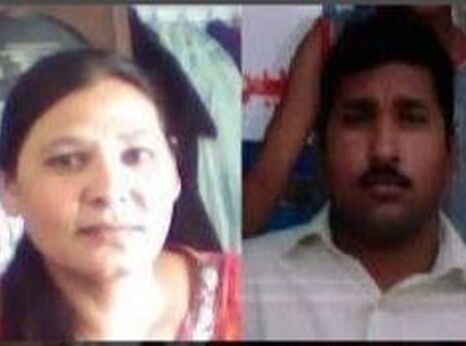Health of death row prisoner in sharp decline

According to a 2014 medical assessment, Shafqat was diagnosed as a paraplegic and suffered from large pressure sores. His lawyers say that he has never received appropriate medical treatment for his injuries, some of which originated from a gunshot wound (unrelated to the events that led to his imprisonment and death sentence). Shafqat’s family stated that he was in a coma for three days in March 2021 but was not shifted to a proper medical facility.
The right to the highest attainable standard of physical and mental health including preventative, curative and palliative health care, is enshrined in international human rights law and standards. The International Covenant on Economic, Social and Cultural Rights (ICESCR), ratified by Pakistan in 2008, stipulates the obligation under Article 12 “to respect, protect and fulfill the right of everyone to the enjoyment of the highest attainable standard of physical and mental health, including those who are imprisoned or detained.”
In addition to Shafqat’s health, his death sentence makes the situation even more precarious. Pakistan’s blasphemy laws are notoriously vague and carry heavy penalties. Based on evidence that fails to meet the standard of proof of “beyond reasonable doubt.”, the accused can face a death sentence. The blasphemy laws violate Pakistan’s obligations to respect human rights and pave the way for other abuses, including death threats and killings. Judges are pressured and intimidated into sentencing the accused, lest they become the next target. Defence lawyers have been killed in court. Witnesses and families of victims have had to go into hiding.
When charges are levelled under most of these laws, the police have the authority to arrest the alleged offender without a warrant and can commence their investigation without orders from the magistrate’s court. Bowing to public pressure from angry crowds, including religious clerics and their supporters, they frequently pass cases on to prosecutors without scrutinising the evidence. And once someone is charged, they can be denied bail and face lengthy and unfair trials.
The threat of violence follows many people accused of blasphemy, with groups or individuals taking the law into their own hands to threaten or kill the accused and other people associated with them, including their lawyers, members of their families, and members of their own community.
A pall of fear also hangs over those working in Pakistan’s criminal justice system, preventing lawyers, police, prosecutors and judges from carrying out their jobs effectively, impartially, and free of fear. A concerning pattern of delaying tactics in Shafqat and Shagufta’s trial appears to be emerging, where at their last two hearings – one scheduled on 15 February, and the latest on 24 February – the judges have excused themselves from hearing their appeal, citing that court hours for the day had come to an end. Amnesty International has documented that postponements have been a common factor in several other cases of people accused of “blasphemy”, with judges often suspected of employing these tactics out of reluctance to pass judgments exonerating the accused. Indeed, trials of people accused of serious charges, including blasphemy, can take many years to conclude in Pakistan’s criminal justice system.
In a report published in 2016 Amnesty International showed how the blasphemy laws enable abuse and violate Pakistan’s international legal obligations to respect and protect human rights, including freedom of religion or belief and of opinion and expression. It also showed how the laws have been used to target some of the most vulnerable people in society, including members of religious minorities. Pakistan’s Supreme Court has acknowledged that “the majority of blasphemy cases are based on false accusations” and are driven by ulterior motives. Amnesty International has found that such motives are rarely scrutinized by the authorities and can vary, from professional rivalry, to personal or religious disputes, to seeking economic gain.
Amnesty International opposes the death penalty in all cases without exception, regardless of the nature or the circumstances of the crime; the guilt, innocence or other characteristics of the individual; or the method used by the state to carry out the execution.